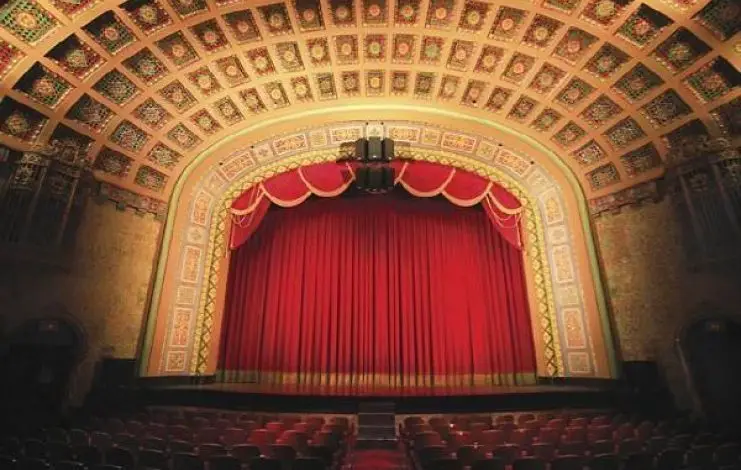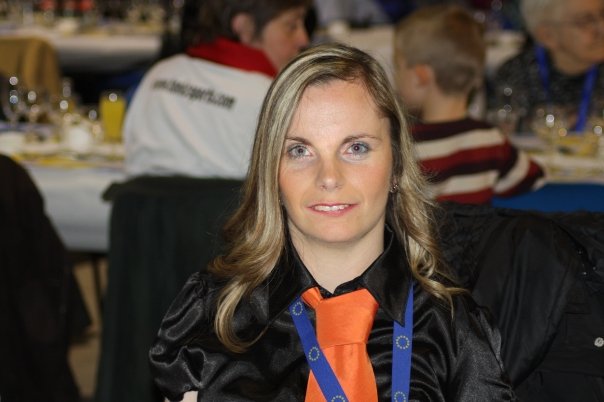
To be or not to be… accessible?
New DH contributor, Nicky Baker, shares this article about her experiences of getting involved in the performing arts and the ongoing battles faced with trying to find accessible venues.
My name is Nicky Baker and I am a wheelchair user who has a rare form of congenital muscular dystrophy and arthrogryposis. I have never let my disability hold me back – I attended a mainstream school and always kept up with my peers. Since leaving education I have held a full-time job at a local disability charity, with a variety of differing roles. I enjoy playing Powerchair football and my team are five times defending national champions.
 For years, I have loved being on stage. In recent years, theatres have become more and more accessible for audience members; however, they always seem to forget about performers with disabilities!
For years, I have loved being on stage. In recent years, theatres have become more and more accessible for audience members; however, they always seem to forget about performers with disabilities!
In the years I was performing (and I only stopped earlier this year) I came across many obstacles, as well as many successes.
My first challenge was to find an accessible acting/drama class. I had friends without a disability who attended a local drama class which was attached to an agency, which they suggested I join. I turned up and the first obstacle I faced was, there were 2 steps into the room the class was in, after negotiations, I was able to access another door, which had 1 step, but as I was 12, had my parents to help ‘bump’ me in. The drama class was later moved to a more ‘accessible’ venue, but was still lacking. For a wannabe actress, no access onto the stage was a slight problem, but got round by me doing ‘abstract’ theatre with me on the floor in front of the stage, with the rest of my group on the stage.
Whilst attending these drama classes, I signed up to the agency attached. I got my ‘first break’ when I was offered a role as a supporting artist in Grange Hill, which I happily took – more about this another time.
I later left this class, to attend one which was more relaxed and there was less pressure. I was now 15 and my parents took me, I arrived to a church where I was attending the class to meet by a grass verge and three steps. I was assured I could get into the back entrance and they would move the class up to there, I went around to the back and yay I could get in. This was where the problems started again, there was level access into the main part of the church, but our drama classes were not allowed to be held on the area with level access. So up 2 steps I had to get, but was managed by using the portable ramps I had started carrying in my van, however, once again this meant I would not be able to attend independently.
Whilst attending this drama class, they decided to put on a show, which I choose to be in. It was to be held in a local theatre. The theatre was the Watersmeet in Rickmansworth; on first arrival it doesn’t seem overly accessible. You are directed all the way around the building to an accessible entrance. By this time, stage fright and nerves are starting to creep in. I go into the auditorium and am horrified by the sight of three steps onto the stage, after months of rehearsals, I think they may have to call my back-up; the technician sees my panic and asks me to return in 10-minutes. I returned in 10-minutes and the stage and the auditorium were level, I was relieved and then puzzled, the auditorium rises so it is the same level as the stage!
When the time came for me to find a new class to attend, a friend without a disability went to assess a prospective venue for ease of access. I was relieved to learn that the ground floor of the theatre was fully accessible and included a large lift onto the stage. However, being a youth theatre, I could not stay long and I was then unable to find an accessible theatre company of the type I was interested in joining
Whilst acting, I also took up dancing. I was dancing with Cando2 (youth company of Candoco). Whilst there, I could focus on my performing and keeping my nerves in check regarding the performance – rather than about access issues! The only problem was when given separate changing rooms to the boys, with a company of 17 and only 2 boys! It was nice to have the normal teenage drama of not having enough space, wondering if the make-up and costumes were right and then crashing the boys changing room for extra space!
My hope for the future is that all theatres are accessible for audience and performers alike.
By Nicky Baker